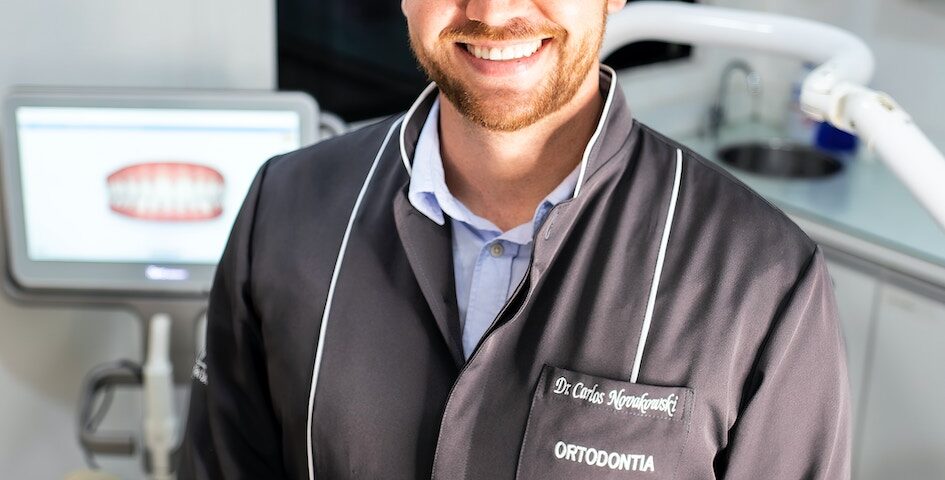- MENLO GROUP
- 480.525.5362 (Call or Text)
- 480.535.5854
- info@menlocre.com
- Grafton Milne, Designated Broker
- Owner Portal | Tenant Portal

Menlo Book Club: The Magic of Thinking Big
April 25, 2024
Menlo Book Club: Hidden Potential
June 20, 2024
By Jason Triano, CCIM, Vice President
Starting a dental practice is a significant professional and financial endeavor. To ensure success, the process requires a strategic approach, careful planning, meticulous execution, and team of industry professionals. In this article, I’ll walk you through the essential steps to successfully start your own dental practice.
1. Financing Your Dream
The first step in starting a dental practice is understanding your financial situation and securing the necessary funding. Here are some key considerations:
- Lending Needs: Determine how much capital you need to establish and operate your practice. Consider expenses for equipment, staffing, office space, initial marketing, and internal construction. Explore financing options such as conventional business loans, lines of credit, and/or Small Business Administration (SBA) lending options. Start talking to lenders at least a year before your desired start date.
Additionally, obtain documentation from your employer to showcase your production metrics. You may be more likely to receive an increased loan amount with this information on hand, which could be especially important with rising inflation impacting construction and practice sales. - Revenue Expectations: Develop clear revenue projections for your practice’s first few years; a consultant or lender could help you get started. Be realistic and consider factors such as your patient volume, pricing, and marketing strategy.
- Your Financial Position: Ensure your financial position aligns with the expectations of potential lenders. Reduce personal debt, increase your liquidity to 5 to 10 percent of your total loan request, improve your credit score, and create a detailed business plan to present to lenders.
If you’re considering buying a home, hold off until you’ve identified a practice location. A home purchase significantly decreases your savings, which could impact your ability to obtain adequate funding.
2. Hiring a Real Estate Professional
A dental-specialized real estate professional can streamline the process of finding the right location for your practice. Here’s how:
- Market Expertise: A dental-specialized real estate advisor possesses in-depth knowledge of the market, including local submarkets and trends specific to the dental industry. Look for professionals who hold designations, such as the Certified Commercial Investment Member (CCIM) or Society of Office and Industrial REALTORS (SIOR), that signify their market knowledge and experience.
- Timing and Connections: Your advisor’s connections can expedite your property search. They can uncover off-market opportunities through their relationships with other agents and dental industry professionals. Your advisor’s experience ensures you make informed decisions about when and where to establish your practice, as they are familiar with the timing fluctuations involved with permitting, construction, financing, and equipment delays.
- Peace of Mind: With professionals handling property matters, you can concentrate on practicing dentistry and preparing to be the CEO of a dental practice.
3. Selecting a Property
Choosing the right property is pivotal to your practice’s success. Consider the following when starting a dental practice:
- Anticipated Move-in Date: Begin your property search with your intended move-in date in mind. Commercial real estate transactions can take several months, so start the process 12 to 18 months before your desired move-in date.
- Attractiveness to Landlords: Understand what landlords are looking for in a tenant. Think of building owners like banks, as they are underwriting a potential tenant and lease. Prepare a strong application, including a well-thought-out business plan, to instill confidence in the landlord.
- Lease and Purchase Options: Examine lease and purchase options carefully. Consider lease terms, purchase price, and how these factors impact the build-out of your practice. Your financial advisor, CPA, and dental real estate advisor will help you evaluate the financial impacts of your decisions now and in the future. Your real estate choices could either cost you or save you hundreds of thousands of dollars during your peak earning years.
4. Consulting a Project Manager
Engaging a dental-specialized project manager or general contractor is crucial to making your practice vision a reality. They will oversee the build out of your space and ensure tenant improvements are completed efficiently and cost-effectively, assuming they are involved early enough in the process. A common mistake for new practice owners is to wait too long to get guidance from these professionals.
Your project manager should be able to calculate the costs and timelines to build out different types of existing properties, such as gray shell (space that has never been occupied) or second-generation medical space (space previously occupied by another type of user).
5. Calculating Equipment Costs
Dental equipment is a significant investment. Understand the costs and ensure they align with your budget. Early in the process, work closely with your lender and chosen equipment company, so you can fine-tune the total amount you will need to borrow based in part on your equipment needs.
6. Submitting a Letter of Intent & Conducting Due Diligence
When you find a suitable property, your next step is to negotiate the Letter of Intent (LOI). Be aware that different types of owners have different expectations of their tenants. For example, small mom-and-pop landlords differ greatly from real estate investment trusts (REITs) in the allowances they offer, the guarantees they require, and the lease terms they expect.
Your dental real estate advisor can help you create leverage by making multiple offers and negotiating terms that work in your favor, including abatements, guarantees, tenant responsibilities, renewal options, annual escalations, etc.
After the LOI is agreed upon, conduct thorough due diligence of the property. Make sure you understand zoning, building and monument signage options, and the impact of any delays. You should be 100 percent confident in the space and its functionality before executing a lease.
7. Signing the Final Contract
Consult with an attorney experienced in commercial real estate contract writing, particularly in your local market. Your lease marks the beginning of a long-term relationship with your landlord, so you should understand all the details of your contract. Work with a commercial real estate company to ensure pressing issues are addressed and the terms match your desired outcomes.
Your real estate advisor can also provide a lease summary of all key deal points. Their careful review and ongoing reminders can help ensure you don’t miss any critical dates that may have a large impact on your next location or renewal.
8. Building Out Your Practice
The hard work begins with the build-out. Be sure to have a clear understanding of the expectations of the bank and landlord. Your attorney or real estate advisor can help you thoroughly comprehend the reimbursement process and allowances provided by ownership, which will drastically increase your probability of being paid what you put into the space.
Other tips for a successful build-out include (1) managing your liquidity wisely, as it can affect your ability to get money back from the landlord, (2) ensuring permits are in place, and (3) keeping your real estate advisor involved until the project is completed.
9. Marketing Your Practice
Start marketing your practice well before opening your doors. Consult a dental-specific marketing company to help create your brand and generate visibility in your community. These companies offer multiple package options depending on your budget and desired level of reach.
10. Opening Your Practice
With the build-out complete and your marketing strategy in motion, it’s time to move in, host a grand opening, and start practicing. Coordinate with your lender to explore grand opening funds.
Starting a dental practice requires strategic planning and careful execution. By following this guide and assembling an experienced team of industry professionals with a proven track record, you can increase your chances of building a successful dental practice for years to come.


